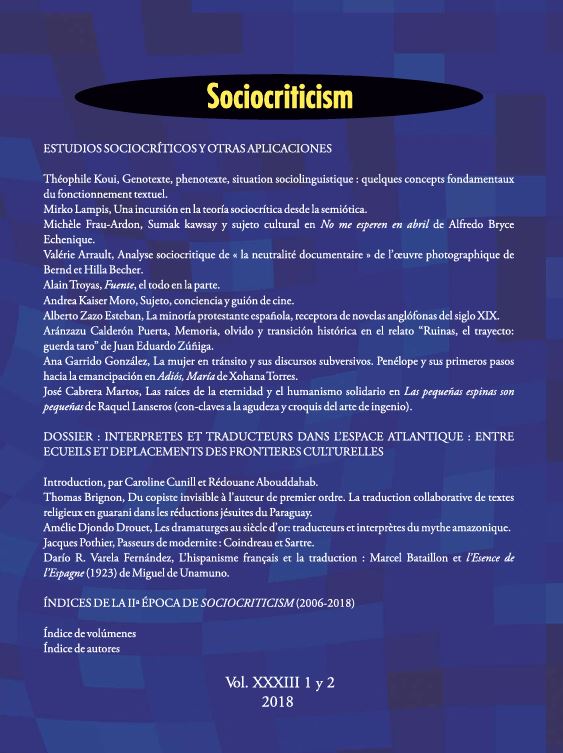Sumak Kawsay y sujeto cultural en No me esperen en abril de Alfredo Bryce Echenique
Palabras clave:
Sumak Kawsay, Perú, 1950, Pacha Mama, sujeto cultural, Alfredo Bryce Echenique, No me esperen en abril, sociocríticaResumen
Nos proponemos abordar el concepto del Sumak Kawsay en la novela de Alfredo Bryce Echenique, No me esperen en abril, desde el sesgo del paradigma cultural de la Pacha Mama. En la Lima de los años 1950, conocida en tanto aluvión migratorio, las fisuras, el distanciamiento y, por fin, el borrado de los dos sujetos problemáticos de la novela, Manongo, el representante del poder hegemónico, y Adán Quispe, el cholo del corralón, quienes cuestionan el discurso neoliberal del crecimiento económico, y apuntan a las cesuras que genera, a la parque problematizan la relación del ser humano con la Naturaleza.












